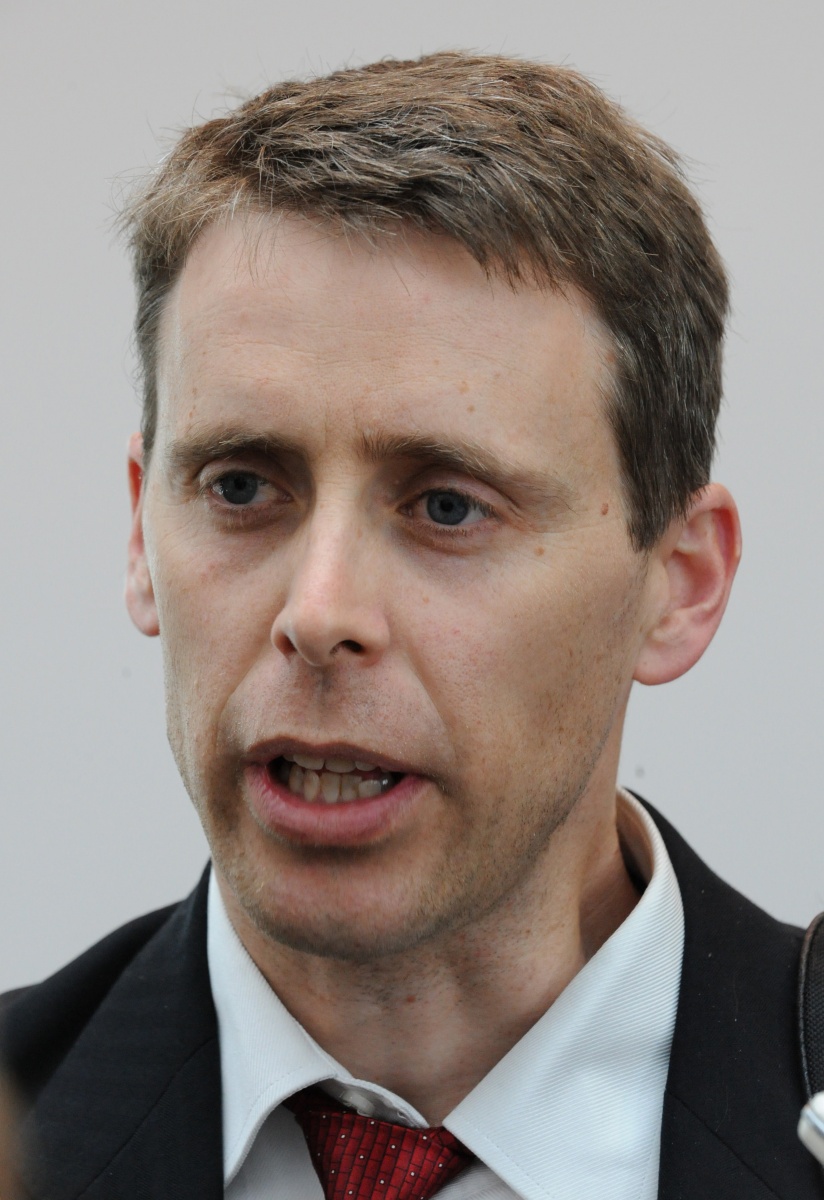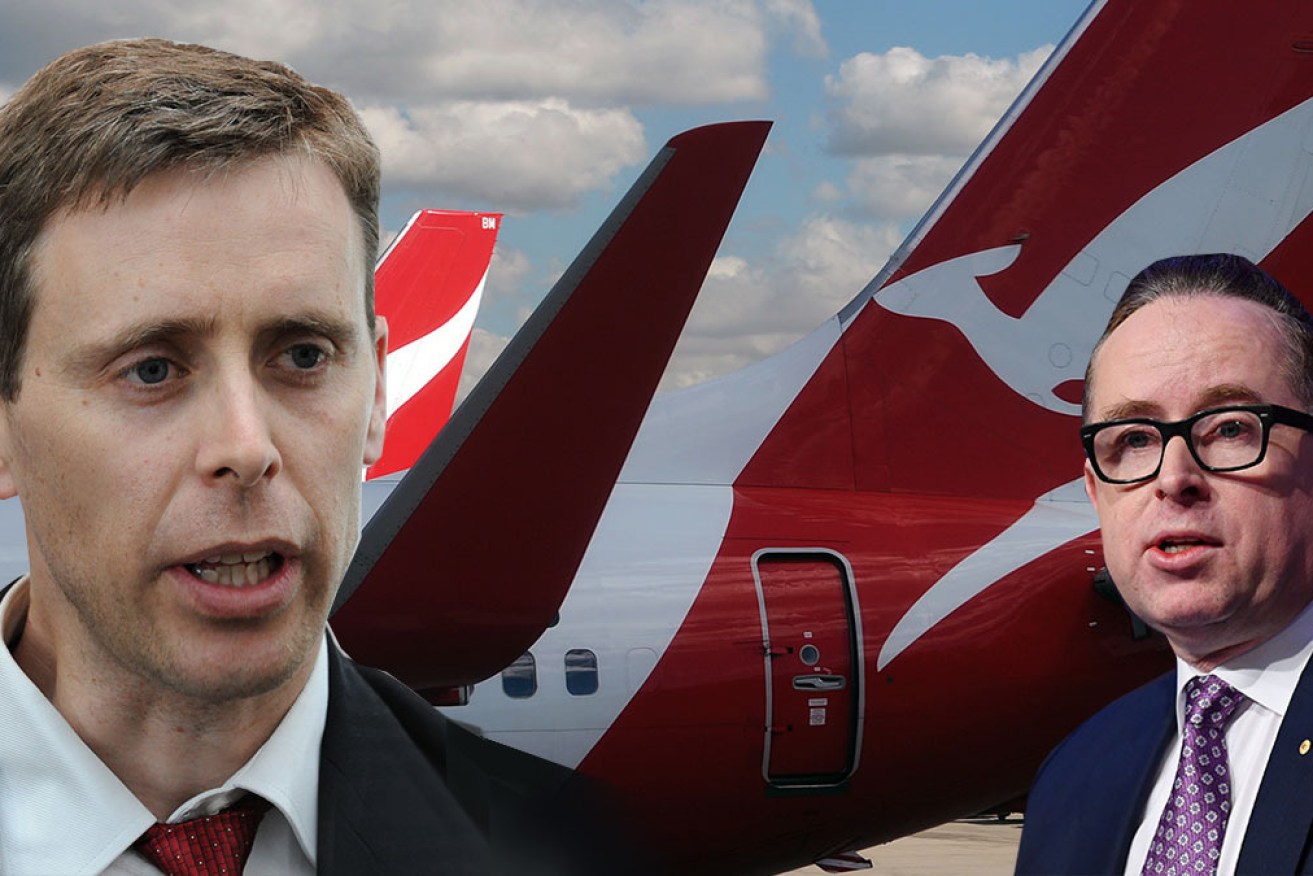Stephen Mayne: Qantas boss Alan Joyce is ruthless, and effective


Alan Joyce is a brually effective chief executive, Stephen Mayne says. Photo: TND
The last time I wrote about Qantas for The New Daily was back in August 2014, when everyone was calling for embattled CEO Alan Joyce to be sacked six tumultuous years after he was announced as the successor to Geoff Dixon in 2008.
Another six years later and Joyce is still ruthlessly running Qantas.
However, he now has so much respect from shareholders and directors alike, the market values the company at $6.24 billion and the board extended his contract until 2023.
Announcing the permanent departure of at least 6000 Qantas staff unsurprisingly attracted most of the headlines, but with Mr Joyce and his now exemplary financial record, you also know that the brutal restructure is probably the right thing to do in the circumstances.
The diminutive Irish migrant doesn’t mess around.
He was notoriously tight-fisted in keeping costs down as the inaugural CEO of Jetstar back in 2004.
And who can forget the way he grounded the entire Qantas fleet in 2011, the day after unionists made more industrial threats at the AGM.
No major ASX-listed company has been more honest, nimble and decisive than Qantas in handling the COVID-19 crisis.
Here is how the ASX announcements have rolled out since March:
- March 10: Grounded 38 planes. Chair and CEO agree to work for free until June 30
- March 17: Grounded an additional 150 planes, with 90 per cent cut to international capacity and 60 per cent cut domestically
- March 19: Two-thirds of 30,000 staff stood down. $201 million dividend payment delayed
- March 25: Borrows an additional $1.05 billion for up to 10 years at just 2.75 per cent by leveraging unencumbered planes bought with cash
- May 5: Extends flight cancellations. Borrows an additional $550 million against three planes
- June 25: Launched $1.86 billion equity raising, cancelled $201 million dividend, extended CEO contract and announced 6000 job cuts to save $1 billion a year in costs. Also foreshadowed a $1.25 billion asset write-down.
It paints a picture of decisive action to save the national carrier from any formal government debt or equity bailout, something which has happened to a majority of airlines around the world in recent weeks.
Qantas is also being tough on its main competitor, Virgin Australia, which is likely to be sold next week.

Qantas will be well-placed to resume its battle with Virgin Australia. Photo: Getty
Raising $1.86 billion of fresh equity just before new private equity owners take control is designed to ensure Qantas is in the strongest possible shape to dominate the market against a weakened rival.
The Qantas capital raising itself is badly structured and will dilute a clear majority of the airline’s 93,000 retail shareholders.
The $1.36 billion placement of shares to institutions at $3.65 came with an excessive 13 per cent discount to Wednesday’s closing price of $4.19.
Retail shareholders will each be offered an opportunity to buy $30,000 worth of shares at the same price through what is called a Share Purchase Plan (SPP), but history shows that a majority of them won’t bother to apply, thereby diluting their collective interest in the company.
However, remember that Qantas still carries lots of risk and will have net debt of $4.8 billion even after this capital raising.
Hundreds of thousands of Australia’s seven million shareholders never hear about SPP offers because of administrative failings with various middlemen such as stockbrokers, accountants, financial planners, fund managers and super funds.
And when they do hear about it, they are all too often scaled back because Australia’s capital raising system is so biased towards the institutional investors who generate big fees for the investment banks.
JP Morgan and Macquarie Group are being paid a tasty $18.36 million fee to manage and underwrite the Qantas placement.
No investment banking fees will be charged for the SPP, which is capped at $500 million and likely to be scaled back when you consider that if all 93,000 shareholders applied for the full $30,000, it would bring in $2.79 billion.
It was a shame Qantas didn’t prioritise its retail shareholders and launch a SPP first, followed by an institutional placement if they needed any more funds.
But that wouldn’t suit the overpaid investment banks or their mates in the directors’ club and among the funds management community.
Better still, Qantas should have done a pro-rata renounceable capital raising that treated all shareholders equally, including by compensating those who don’t participate by selling their entitlements to the highest bidder.
Stephen Mayne is an independent journalist, founder of Crikey.com, shareholder activist, Qantas shareholder and former local government councillor who can be reached at [email protected] or via Twitter @maynereport







